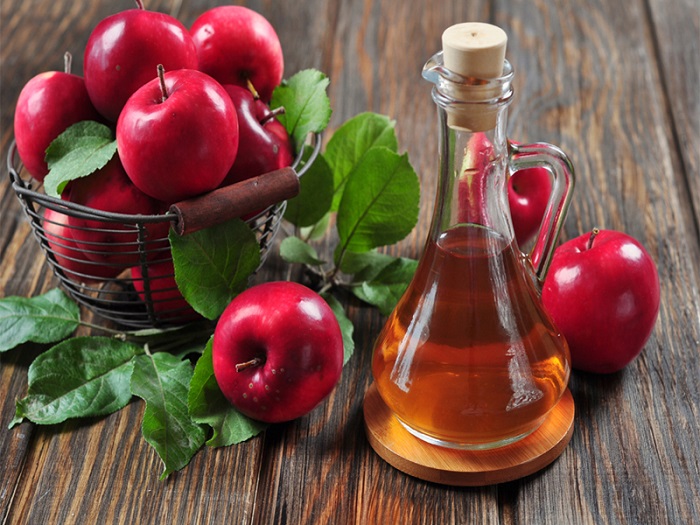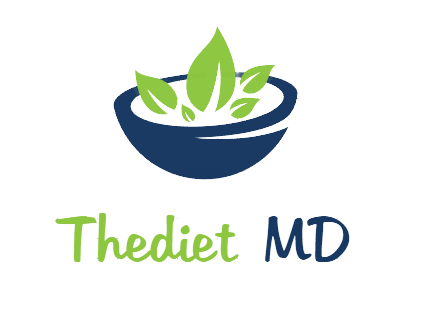Have you ever used apple cider vinegar on your hair? With the increasing demand for more natural cosmetics, this product started to be a great option to hydrate and rebuild hair.
Despite being created to preserve food and disinfect wounds, apple cider vinegar has also proved to be an ally of hair health. For this reason, we have separated some ways to use this product on your highlights depending on the effect you want to achieve.
In addition, you can check out all the benefits already proven by science regarding this type of vinegar. It also finds out if it can eliminate dandruff and if there is any contraindication to its use on the scalp. Follow up!
Table of Contents
How to use apple cider vinegar on hair?
There is no mystery about using apple cider vinegar on your hair, as the process is quite simple and you will be able to see the results right after the first few uses. The first step is to prepare a mixture of four tablespoons of apple cider vinegar to 200 ml of water. The amount may vary depending on the length and volume of the wires.
After that, wash your hair normally with shampoo and apply the diluted vinegar to the scalp. Then, massage this region to enhance the effects of the solution and also stimulate hair growth .
An important tip is not to use conditioner after applying the vinegar, as the strands will already be aligned. Plus, you don’t have to worry about the smell as it comes out when your hair is drying.
Some people, especially those with dry hair, choose to wash the hair with vinegar. To do this, just apply the product diluted in water to the root and massage well, to remove any impurities.
To condition and finish, the ideal is to choose less consistent products, which will not remove the loose effect left by the vinegar.

Product benefits for yarn
The apple cider vinegar brings many benefits, not only for the body’s health, but also to the hair. This is mainly because it has a pH very close to that of the scalp.
In addition, the product is natural and free of compounds made from paraffin and oil, which stick to the structure of the strands and leave the hair with a heavy look.
See below what are the main benefits of apple cider vinegar for hair:
- Balances the pH
- Remove waste
- Gives more definition to curls
- Leaves the strands soft
- Decreases porosity and prevents damage
- Reduces frizz
- gives shine
- Fights the fall and stimulates growth
Balances the pH
pH is the name given to a numerical scale that measures the degree of acidity, neutrality or alkalinity of solutions. Thus, solutions with a pH lower than 7 are considered acidic, while those higher than this number are alkaline and level 7 solutions are neutral.
Vinegar has a pH ranging between 3 and 5, very similar to that found in skin and hair. The scalp and skin are usually at 5.5. The length of the strands, on the other hand, has the most acidic pH, reaching 3.67.
Keeping the hair’s acidity at moderate levels not only helps to strengthen the hair fiber, it also prevents problems that reach the root of the strand and acts to seal the hair cuticles.
Remove waste
Since its creation, more than 10,000 years ago, vinegar has been used to clean surfaces and foods. That’s because, this product has acetic alcohol, acting as a cleaning agent.
When used directly on the hair, apple cider vinegar can remove residues left by beauty products. Conditioners, treatment masks and styling creams, especially those containing paraffin and petroleum derivatives, leave residues that shampoo cannot completely remove.
Over time, this accumulation of substances makes the strands heavy and can leave the roots and length of the hair greasy . Use vinegar frequently also to oxygenate the scalp.
Gives more definition to curls
Apples, the raw material for making this variety of vinegar, are rich in a substance called pectin. This substance is responsible for the viscosity found in apple juice and is present in vinegar. Because of that, this product helps to give more elasticity and resistance to curly hair.
In addition, vinegar seals the hair cuticles, making the curled strands lose less water throughout the day. This helps to maintain definition, while not leaving the strands looking heavy or oily.
Leaves the strands soft
Because of its properties of keeping the pH at balanced levels and sealing the cuticles, the constant use of apple cider vinegar makes the hair softer.
First of all, you need to know that hair is not a smooth structure. It is made up of multiple cuticles, which in healthy hair remain closed and reflect light. What vinegar does is align these structures.
This way, the inside of the hair is not exposed and as a consequence there is less water loss during the day, making the strands maintain their hydration and softness naturally.
Decreases porosity and prevents damage
Also related to the balance of the hair’s natural acidity, apple cider vinegar serves to reduce porosity. With the cuticles closed, the hairs are less porous and more resistant to damage.
This process is called acid reconstruction, which is when the hair receives a substance that has a similar acidity and manages to replace some nutrients lost with daily aggressions.
The antioxidant properties present in apple cider vinegar, thanks to phenolic compounds, act directly to prevent cell oxidation and protect hair from damage and premature aging.
Reduces frizz
When the hair’s pH is unbalanced, it causes an increase in negative electrical charges in the hair. This increases the friction between the strands and makes the strands more armed and frizzy .
The frizz is nothing more than the hairs that did not line up. The result is frizzy hair, which annoys a lot of people and still leaves a sloppy appearance.
Using apple cider vinegar on the hair already reduces frizz in the first application and the result only improves with subsequent uses. Especially with the damage reduction it provides, making the strands more aligned.
gives shine
This benefit is closely related to the decrease in porosity and decrease in frizz . This is because it is quite common for hair with open cuticles to lose a lot of water and the natural layer of fat that surrounds the hair.
When these small capillary layers are aligned, they are better able to reflect light. This gives the impression that the strands are naturally shinier, in addition to maintaining the natural layer of protective sebum and water inside the strands.
Fights the fall and stimulates growth
Finally, sticking to the use of apple cider vinegar often helps to reduce hair loss and on top of that, it encourages the growth of new hairs . This is directly derived from the scalp residue removal property.
In practice, this can unclog pores and hair bulbs, favoring the growth of new hairs. In addition, vinegar has several minerals that also act directly on hair growth, especially potassium.
By decreasing damage to the wire’s length structure, the substance also decreases the incidence of shedding caused by breakage. Making the locks grow healthier.

Is apple vinegar effective against dandruff?
Yes, people suffering from dandruff problems can benefit from apple cider vinegar. This happens because of the antibacterial and antifungal properties present in the substance.
It should be noted that white flaking popularly called dandruff is caused by a condition called seborrheic dermatitis.
This fungus causes itching, inflammation and scaling of the scalp. Because of its antifungal properties, apple cider vinegar acts at the root of the problem and helps prevent the spread of Malassezia globosa , a fungus that naturally inhabits human skin.
In addition, this product also helps to maintain the natural acidity of the hair root, which is necessary to prevent the appearance of dandruff .
Are there any contraindications?
You saw here how to use apple cider vinegar on hair and what benefits it brings to the hair. However, it is necessary to pay attention to some precautions to be taken when using.
The first is to never use pure apple cider vinegar. Acetic acid, one of the main constituents of this substance, can cause burns when it comes in contact with the skin.
Cases like this are rare to happen, however, it is better to prevent and use vinegar diluted in a little water to reduce the risks. In addition to always opting for products that have between 4% and 6% acetic acid in their composition. Or make your own apple cider vinegar.
Finally, people who are allergic or sensitive to apples should also not use this type of vinegar, as it can cause adverse reactions. In addition, its use is free and as it is natural it can be used even by pregnant women.
My name is Ellie Lauderdale, MD and I am USA based professional Nutritionist .
I am a Registered Dietitian Nutritionist and board certified specialist in sports dietetics who is trained in integrative medicine. I have worked with hundreds of clients, from those suffering with chronic disease to professional and olympian athletes. My goal is to help optimize you from the inside so that you can feel, perform, and look your best on the outside.


